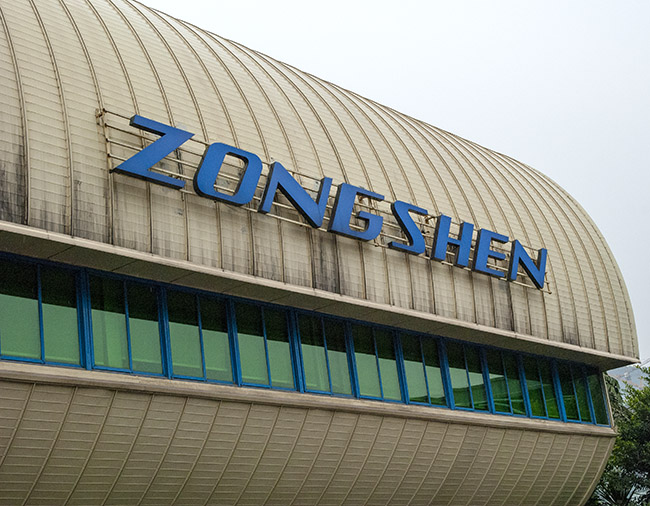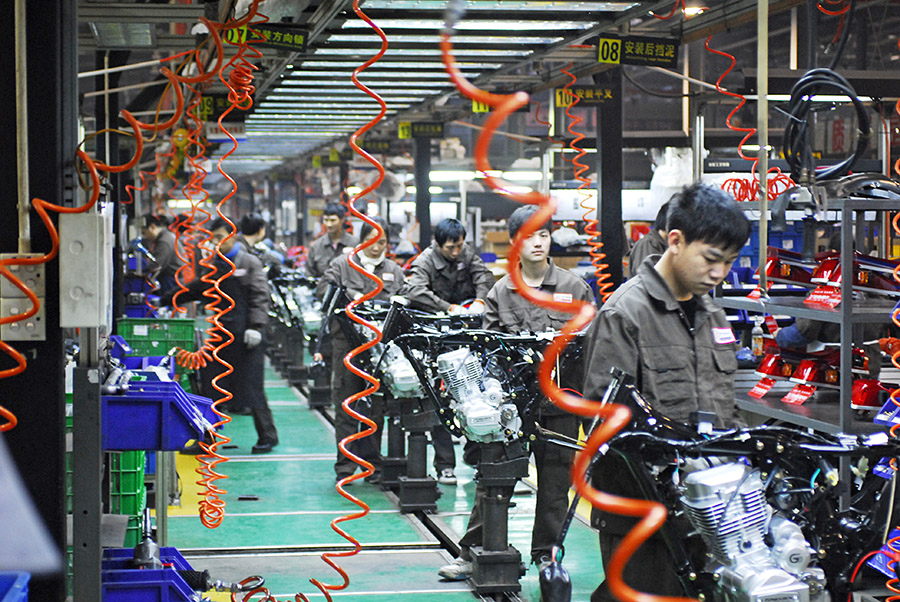By Joe Berk
Two of the largest motorcycle companies in China are Zongshen and Loncin. I recently learned that Zongshen became the major shareholder of Loncin, turning Zongshen into the largest of the motorcycle companies in China. I asked my contact at Zongshen if he could tell me more about this, and he did.
Hi Joe:
On July 3rd, Zonsen Power, a listed company under Zongshen Group, announced official news. Here are the details:
Zonsen Power announced that its associate company intends to invest 3.35 billion yuan (CNY) to acquire a 24.55% stake in Loncin. Upon the completion of the transaction, Zonsen will become the largest shareholder and the actual controller of Loncin.
In fact, before this acquisition, Loncin Group had been trapped deeply a debt crisis due to heavy losses in its real estate business, leading to significant debts in 13 of its subsidiaries.
In previous years, Loncin had been trying hardly to resolve this issue, and some companies proposed acquiring shares in Loncin, but ultimately, none succeeded.
The Chongqing court ruled that Loncin Group must resolve this debt issue before August 2024, or the company will be auctioned. This acquisition of Loncin by Zonsen is likely the result of coordination by the Chongqing government.
As the previous acquisition of Lifan by Geely Automobile was not successful. Geely, a powerful automotive enterprise in China that is the largest shareholder of Daimler and once acquired 100% shares of Volvo, but had no intention of developing the motorcycle industry by acquiring Lifan. Instead, it aimed to obtain Lifan’s electric vehicle production license. However, after the acquisition, Geely did not invest much in the motorcycle sector, causing Lifan to decline significantly, which greatly displeased the local government.
Although Loncin’s real estate business has suffered heavy losses, its motorcycle business is still operating well. Therefore, the local government is unwilling to let Loncin suffer the same fate as Lifan, so it coordinated with Zonsen to acquire a majority stake in Loncin, and state-owned assets also invested in Loncin.
Whether Zongshen and Loncin’s businesses will be merged is yet to be announced officially, but most people believe that Loncin will maintain its current structure and business, and there will still be competition between the two companies in the same industry.
Thanks!

These are interesting developments. In case you were wondering, Zonsen is the name by which what we knew as Zongshen now wishes to be called. Another bit of information: 3.35 billion Chinese Yuan is the equivalent of approximately 461 million US dollars. I first visited Zongshen more than a decade ago, and the company impressed me greatly.
Never miss an ExNotes blog:



There are many, many large privately owned and state owned businesses in China that have nothing to do with real estate, yet they invested heavily in that sector. I bet there are a number of conglomerates that are hoping to survive the current real estate debacle.
I just returned from my latest trip to China in late April. The amount of partially completed buildings is quite obvious. Even the large complex in which my in-laws have lived for over a decade has many empty apartments. They’re all the more obvious as the exterior of the apartments remain windowless and with bare concrete (Buyers are responsible to finish).
On a more positive note, the number of electric vehicles there now is quite impressive. I never stepped foot in a Didi (Chinese Uber) that was not electric, and I’d bet 96% of the scooters I saw were electric. Government subsidies are making them too good to pass up for the Chinese middle class. Sadly, I came across nearly no ICE powered motorcycles this time.
If the local government was invested in Loncin, I bet they gave Zongshen “a deal they couldn’t refuse” to invest. Such is the State owned enterprise/private sector symbiosis over there.
Dan K.
Thanks for the inputs, Dan. It really is a fascinating thing to watch. I started seeing this wholesale turn to electric vehicles on our ride across China with Zongshen. Interesting to hear it is continuing unabated. I think I will always be an internal combustion kind of guy, but watching the electric vehicle industry (and how different countries are reacting to it) is fascinating.
Your input about the vacant buildings is also interesting. I think folks who haven’t been to China have no concept of just how wildly they overbuilt apartment buildings. It will be interesting to see how that wave crashes on shore.
A few decades back, Westinghouse was ruined by real estate deals gone bad.
It happens. Sometimes folks (and companies) forget that what goes up must come down.
Coal. Hasn’t China been building an incredible amount of coal fired electric generating plants up toward Mongolia?
So those chinese electric scooters are somewhat coal powered .
The Paris environmental accords gave China a huge break while the green extremists have put the American taxpayer on the hook .
Apparently , according to the report shown here on exhaust notes, when one buys Chinese motorcycles one is helping bail out failed Chinese real estate enterprises. Not good .